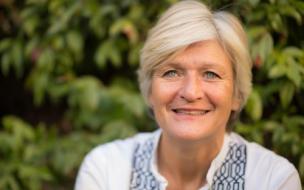Since graduating top of his class at Hult International Business School, Jimmy has positioned himself as one of the most motivated, ambitious, humble and inspiring figures in London’s start-up scene. He’s also the founder and President of FAST Network, and recently co-founded ENA, a Peruvian soda brand produced by Peruvians, for Peruvians, in Peru, using Peruvian “super-food” ingredients.
In all of his current ventures, Jimmy works with other Hult MBAs in an endless pursuit of scalability and eventual global impact. Despite having been an accomplished entrepreneur beforehand, he credits his MBA with empowering him to transition into international business.
What gave you the idea to co-found little concert?
It was actually my co-founder, Ricardo Presa, who thought of little concert during an entrepreneurship seminar at Hult. With Giacomo Carloni, the three of us started working on the project straight after our graduation from Hult, and Giacomo and I founded the company in January 2016.
little concert was specifically influenced by case studies we looked at for the sharing economy.
The basic model for now is making it easier for people and companies to book musicians, and getting gigs for those unsigned musicians, 60% of whom play for free in London. We also take a much smaller cut of the booking fee than other agencies.
Funnily enough, it might just be the first company to actually facilitate gigs in the gig economy!
What are the main challenges you’ve faced so far with little concert, and do you have any advice for entrepreneurial MBAs?
We set out with a “go big or go home” mentality, which is normally inadvisable, and has cost us a lot in terms of resources. We knew that with little concert we would disrupt a somewhat hostile industry, so we wanted to proactively prepare ourselves for any possible adversity.
My advice to entrepreneurs with potentially disruptive ideas would be to hope for the best and prepare for the worst. Other than that, be agile, listen to your target audience, and keep your focus.
Why did you decide to pursue an MBA at Hult?
When I sold my last business my partner and I left Denmark and decided to move to Milan. I quickly discovered that the Italian system isn’t well-suited to start-ups, and found the MBA programs too corporate in their culture.
Finding the right MBA then became the priority, and Hult felt like the perfect fit. Personal development, becoming a better leader and a global outlook were what I was looking to gain, and Hult fulfilled all my criteria, placing a highly entrepreneurial focus alongside the standard corporate agenda.
How did you come to employ other Hult MBA grads at little concert?
Every sort of professional agenda I have at the moment is, in some way, connected to Hult. I think it’s a combination of Hult’s alumni network and maintaining relationships with classmates.
My co-founders at little concert were both Hult classmates, and I’m working with Raul Otero, another Hult MBA, at ENA. I also work with Duncan Thompson, another Hult alumna, who has been an absolute star for little concert.
The rest of the team at little concert don’t have MBAs because they’re more on the technical side of things, and we’re planning to hire more music industry people soon. MBAs can run a business and develop the company, but these guys are equally valuable.
How else have you profited from your MBA experience?
I’ve gained the ability to think globally and to develop scalable business models. I also gained an international network and improved my soft skills tremendously.
Hult’s Impact Challenge, a half-year entrepreneurial project overseen by coaches, was a great teamwork experience, and we actually developed a functioning prototype, best described as a “Netflix for gaming”. It enabled us to, in a safe environment, go through a stressful journey while utilizing newly-learned soft skills.
All in all, I see my MBA as the best investment I’ve ever made. It’s been a life-changing milestone for me.
What should prospective applicants take into account when deciding on an MBA?
You need to be very aware of why you’re doing it, and don’t do it as an excuse for not doing something else. You won’t do two MBAs, so be very careful and thorough in your research. It’s a big investment with a huge opportunity cost, both financially and personally.
What are your plans for the future?
Between helping my business partners in developing ENA and evolving FAST Network with the rest of the Board, I am committed to little concert, and together with my trusted business partner and the rest of our outstanding team, I want to grow this community and break down global barriers.
RECAPTHA :
b3
8b
42
33







